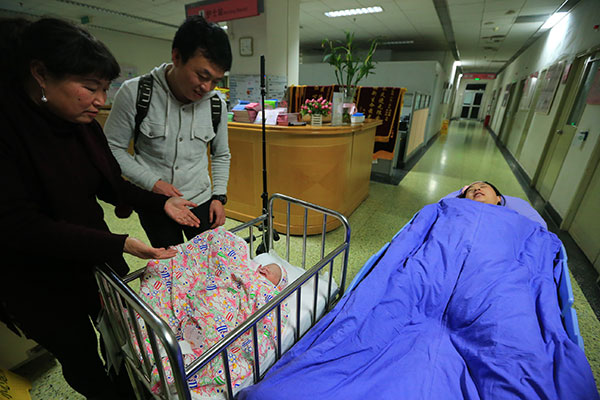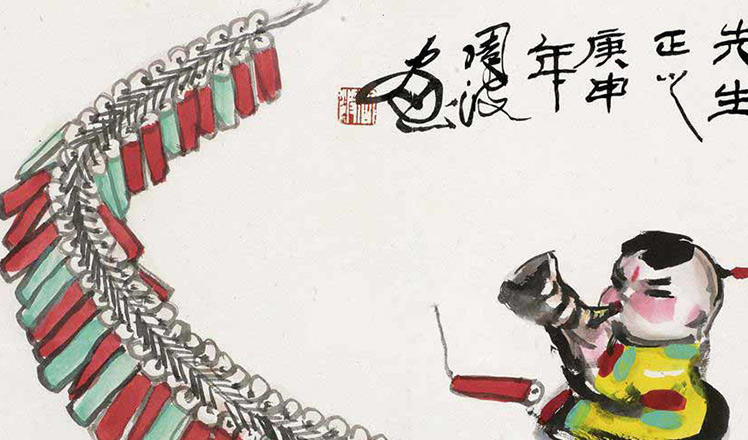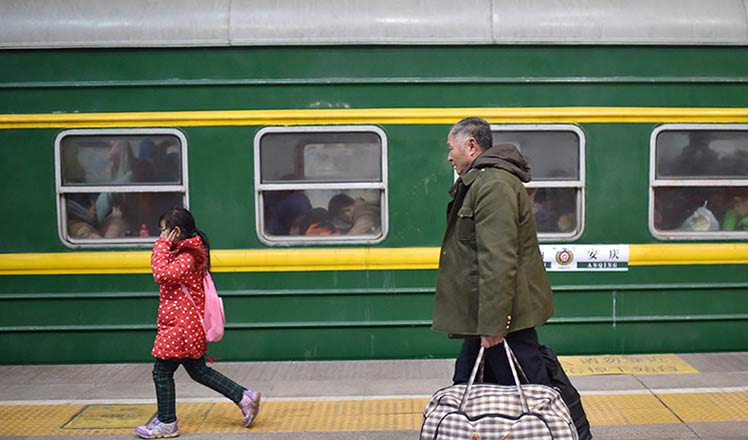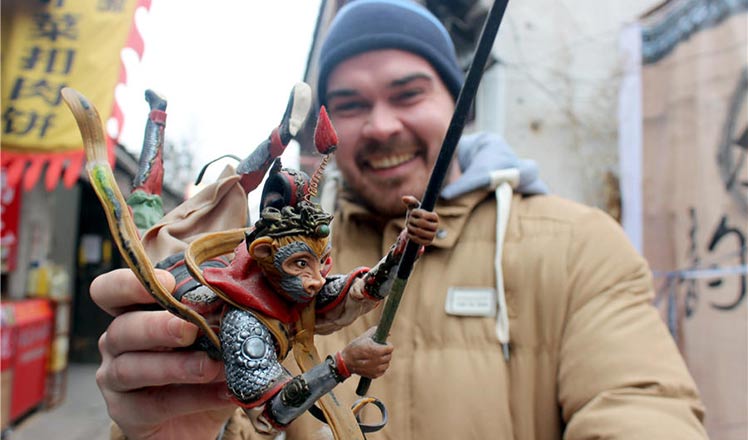Beijing gets ready for rush of births
Updated: 2016-01-08 07:28
By WANG XIAODONG(China Daily)
|
||||||||
 |
|
A baby girl, the first newborn in Beijing this year, meets her family at the Beijing Obstetrics and Gynecology Hospital on Jan 1. The parents said they have plans for a second child. FU DING/CHINA DAILY |
Beijing will have more than half a million extra births in the next few years because of the recently adopted national two-child policy.
The birth rush will bring challenges to public services in Beijing, such as maternal health, baby nurseries and kindergarten education, according to the Beijing Municipal Commission of Health and Family Planning.
The policy has made another 2.36 million couples who are permanent residents in Beijing eligible to have a second baby, the commission said on Thursday.
The policy, which encourages all couples in China to have two children to ease problems such as a shrinking workforce and aging population, was adopted nationwide on Jan 1 after being approved by the National People's Congress in December. About 90 million Chinese couples will be eligible to have a second child under the policy.
It is predicted that 580,000 extra babies will be born in Beijing between 2017 and 2021, which will bring the total number of births between 2017 and 2021 in Beijing to 300,000 annually on average, the commission said.
The birth rush will diminish within three to five years and will end after 2021, the commission said.
Most of the couples newly eligible to have a second baby under the universal two-child policy are those born after 1970. It is predicted that, considering their ages, most who want a second baby will finish childbirth by 2021, said Yao Tienan, a publicity official at the Beijing Municipal Commission of Health and Family Planning.
More than 61,000 couples in Beijing applied to have a second baby after the city allowed couples where only one was an only child to have a second baby, a measure initiated in February 2014, the commission said.
The Beijing government will work on challenges brought by the birth peak, such as improving distribution of medical and educational resources, helping the development of grassroots hospitals and encouraging hospitals to reduce C-sections so the length of childbirth stays in hospital can be reduced, the commission said.
Chao Wei, a publicity official at the Beijing Obstetrics and Gynecology Hospital, said the hospital has been preparing for the birth peak.
"The number of patients has been increasing since late last year, and we predict a big increase this year," he said.
Chao said the hospital has opened special clinics since Monday to help patients see doctors in the evening. The clinics run Monday to Friday from 5 pm to 8 pm, he said.
The hospital has also prepared itself to receive more older pregnant women, who suffer higher risks when giving birth, and has increased the number of beds for newborns suffering critical diseases, he said.
- A glimpse of Spring Rush: little migrant birds on the way home
- Policy puts focus on genuine artistic students
- Police unravel market where babies are bought, sold as commodities
- More older pregnant women expected
- Netizen backlash 'ugly' Spring Festival Gala mascot
- China builds Mongolian language corpus
- 2 Chinese nationals killed, 1 injured in suspected bomb attack in Laos
- New York, Washington clean up after fatal blizzard
- 'Plane wreckage' found in Thailand fuels talk of missing Malaysian jet
- Washington shuts down govt, NY rebounds after blizzard
- 7 policemen, 3 civilians killed in Egypt's Giza blast
- Former US Marine held in Iran arrives home after swap

 Drone makers see soaring growth but dark clouds circle industry
Drone makers see soaring growth but dark clouds circle industry China's Zhang reaches Australian Open quarterfinals
China's Zhang reaches Australian Open quarterfinals
 Spring Festival in the eyes of Chinese painters
Spring Festival in the eyes of Chinese painters
 Cold snap brings joy and beauty to south China
Cold snap brings joy and beauty to south China
 The making of China Daily's Tibetan-style English font
The making of China Daily's Tibetan-style English font
 First trains of Spring Festival travel depart around China
First trains of Spring Festival travel depart around China
 Dough figurines of Monkey King welcome the New Year
Dough figurines of Monkey King welcome the New Year
 Ning Zetao, Liu Hong named China's athletes of the year
Ning Zetao, Liu Hong named China's athletes of the year
Most Viewed
Editor's Picks

|

|

|

|

|

|
Today's Top News
National Art Museum showing 400 puppets in new exhibition
Finest Chinese porcelains expected to fetch over $28 million
Monkey portraits by Chinese ink painting masters
Beijing's movie fans in for new experience
Obama to deliver final State of the Union speech
Shooting rampage at US social services agency leaves 14 dead
Chinese bargain hunters are changing the retail game
Chinese president arrives in Turkey for G20 summit
US Weekly

|

|







